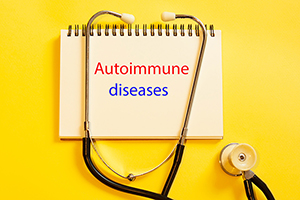



| By Dr. Ronald Hoffman
Last weekend I went to see Jurassic World, the latest in Steven Spielberg’s dinosaurs-run-amok franchise. I had read lukewarm reviews of the movie, but I decided to keep an open mind.
The plot is implausible, and the CGI action is no longer as novel as when Jurassic Park stunned audiences with its depiction of re-animated dinosaurs twenty years ago.
 But once I put on the 3D glasses, it’s as if my critical faculties were suspended, and I went with it. Despite its inevitable progression to catastrophe (who didn’t see THAT coming?!), Jurassic World is a thrill ride that deserves its place in the Pantheon of Jurassic sequels.
But once I put on the 3D glasses, it’s as if my critical faculties were suspended, and I went with it. Despite its inevitable progression to catastrophe (who didn’t see THAT coming?!), Jurassic World is a thrill ride that deserves its place in the Pantheon of Jurassic sequels.
But, interestingly, amidst the gore and roar, there lies an important parable for our modern world. Jurassic World is really about the perils of genetic engineering.
The ancient Greeks had a word for it: hubris. This was the theme of many Classical Greek dramas, dating back 2500 years. Man, in his pride, violates the laws of nature, challenges the supremacy of the gods, and must meet an inevitable, horrible fate. Oedipus is blinded after murdering his father, Icarus’ wax wings melt and he falls to earth after trying to fly to the sun, and various mortals meet comparable ends after defying the gods.
Hubris is the underlying theme of Jurassic Park. The audience chortles in the early parts of the movies as technocrats offer bland assurances that “we’ve envisioned all possible contingencies,” that the park is “completely safe,” and that “security measures are the most stringent ever devised.” We know that, most assuredly, within minutes all hell will break loose.
After seeing the original Jurassic Park in the 90s, I penned an article titled “Jurassic Park Medicine.” There I compared the genetic resurrection of dinosaurs with polypharmacy—the use of multiple medications, especially in our elderly, vulnerable populace.
While just 10% of Americans under the age of 65 take 4 or more medications, by age 70-84, 41% of Americans take that many drugs; 17% take 6 or more! (Source)
Polypharmacy astronomically increases the likelihood that unforeseen side effects will develop, especially in our vulnerable elderly. When so many drugs are used simultaneously, there is just no way to predict how they will interact. The result is that iatrogenic (medically-caused) complications result in hundreds of thousands of hospitalizations annually; the side effects of drugs taken even as properly prescribed dispatch thousands of victims yearly.
Even Steven Spielberg’s rampaging mutant dinosaurs couldn’t wrack up that kind of toll!
But now, 22 years after the prophetic release of Jurassic Park, we are well on our way to implementing the very genetic technology that the original movie warned us against. GMO foods are flooding the marketplace, and in an ominous echo of Jurassic World, we’ve created super-sized “Frankenfish”—genetically modified salmon.
And we’re now on the threshold of creating genetically modified humans. On the pretext of preventing hereditary diseases, Chinese researchers are “editing” the human genome to eliminate undesirable traits. How far that effort will proceed in a totalitarian society has some people worried.
It’s no great spoiler to reveal that Jurassic World invokes the familiar tropes of unbridled capitalism, the rapacious drive for profits, and unrestrained consumerism. The plot has it that the public has become blasé about just ordinary dinosaurs, so the imperative is to concoct something “bigger, scarier, toothier.” Unethical scientists at the behest of uber-rich entrepreneurs prove a bad mix. Mayhem ensues.
To take the metaphor one step further, the food industry’s efforts to juice revenues by offering the public all manner of toxic, addictive food products can be seen as another example of the unforeseen consequences of Jurassic-style technological hubris. One “designer food”—trans fats—has recently been called for to be banned by the FDA after 60 years of opposition by eminent nutrition scientists. But synthetic chemicals, preservatives, and artificial flavorings still abound in the U.S. food supply.
What could possibly go wrong?!
The moral of the story is an old one: It’s not nice to fool with Mother Nature!
Though we think of declining estrogen as the hallmark of menopause, it's actually common for…

Up to 12 percent of Americans have ulcers at some point in life. Peptic ulcers…
Gallbladder disease is a modern illness. An estimated 20 million Americans have gallbladder disease. The…

New, more powerful weight loss drugs: Drugs like Wegovy, Rybelsus, Ozempic and Mounjaro/Zepbound are revolutionizing…

According to the Lancet, autoimmune disease affects one in ten people globally and it’s now…

This past week we were regaled with headlines like: High levels of niacin may increase…

Leyla Weighs In: The Erosion of Trust in Nutritional Research

Our virtual voicemail is open 24/7, so there's no need to wait to submit your questions for Dr. Hoffman. Leave a message, and you may hear your question featured on the Intelligent Medicine radio program!